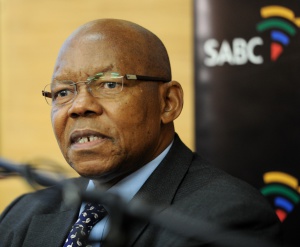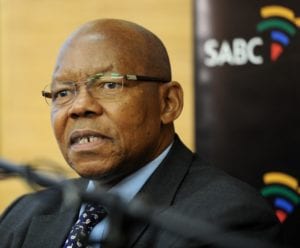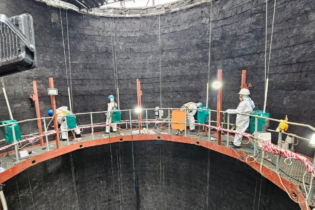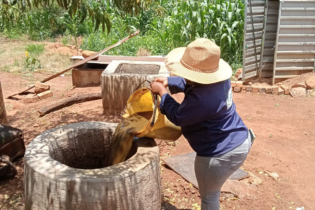
Eskom board chair Ben Ngubane
Newly reappointed Eskom CEO Brian Molefe was scheduled to deliver the conference’s keynote address, but pulled out due to another engagement. It would have been Molefe’s first public appearance since his reinstatement.
The allegations
Ngubane, who addressed the conference in place of Molefe, held an impromptu media briefing after his address. Here he dismissed claims that he and Molefe had pressurised former mineral resources minister adv. Ngoako Ramatlhodi to help the Guptas take over the Glencore coal mine.
The Eskom chair defended Molefe’s reinstatement as CEO and said Molefe had missed the event because he had been called to parliament. On Molefe’s reinstatement he said: “It is going to be for the good. He is going to carry on where he stopped – making electricity affordable for our people.”
Ngubane explained Eskom’s objective is still to lower the cost of electricity in the country by paying back the government guarantees and creating significant cost savings.
He also shrugged off calls for the Eskom board to be dissolved, stating that the board serves at the behest of those who appoint it.
The latest revolution
In his short address Ngubane called African Utility Week a mini World Economic Forum (WEF) for the energy sector.
Playing off the recent WEF theme he said that the energy sector must consider what the fourth industrial revolution means for the continent and how this change can be leveraged to benefit individual economies.
“It is important that the energy industry in Africa explores how new ideas can be born through collaborative networks of state institutions that bring businesses, utilities and countries together.”
Ngubane also told delegates that now is an opportune time to invest in the region in ways that ensure mutual benefits.
The potential of renewables
Amb. Trine Rask Thygesen, Danish ambassador to South Africa, also spoke at the keynote, highlighting the potential investment opportunities for renewable energy in South Africa. According to Thygesen, renewable energy has brought close to R200 billion into South Africa and was responsible for 85% of foreign investment in South Africa in 2015. And today, through independent power producers, the price of solar PV and wind is 40% cheaper than base load.
Thygesen stressed that the technology is here to provide the needed solutions. “Integrating variable renewable energy sources into the grid is absolutely doable here in Africa and it is an integral part of a forward looking energy system. It’s good for the environment and it’s good for the economy.”
Regional integration
In his address, Deputy Minister of Public Enterprises Dikobe Ben Martins stressed the need for regional integration and co-operation in order to minimise the cost of supply and to enhance reliability and security of supply.
According to Martins, a lack of electricity and water remains one of biggest barriers to development and prosperity in Africa, trapping millions in extreme poverty and underdevelopment. In fact, the continent’s alarming energy deficit and the associated challenges cost African economies 2% to 4% of their GDPs annually.
“Without efficient clean energy and adequate water supply efforts to engage in productive commercial activities to improve quality of life is greatly undermined.”








